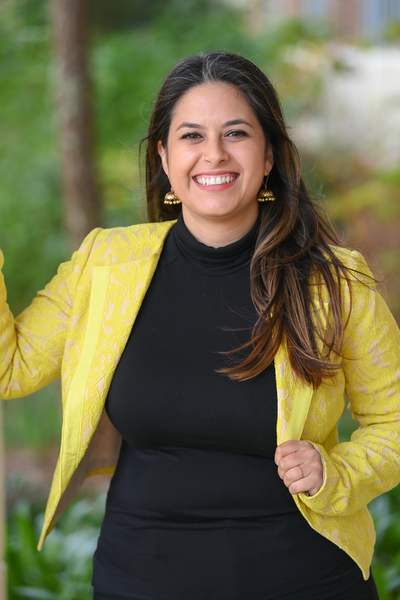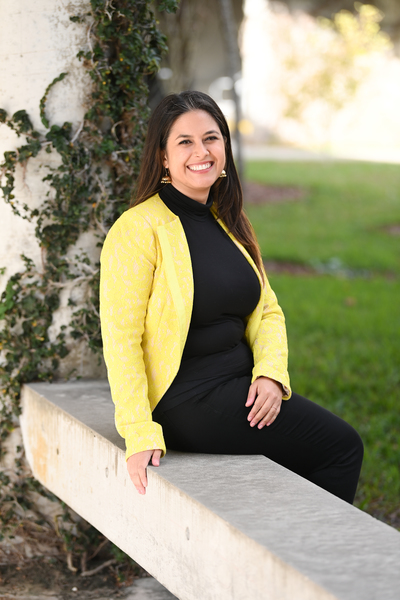UNF professor discusses the benefits of learning a second language
Whether you want to learn a new language to live, work or study in another country or simply for pleasure, one thing is for sure – learning a new language not only can enrich your life but it can improve your mental health, too.
 “Learning a new language gives you the ability to see the world differently and can help strengthen cognitive health, as well,” said Jessica Chandras, assistant professor of anthropology at the University of North Florida, who specializes in linguistic anthropology. “Being bilingual promotes critical thinking by opening your world to multiple perspectives and understanding of different cultures.”
“Learning a new language gives you the ability to see the world differently and can help strengthen cognitive health, as well,” said Jessica Chandras, assistant professor of anthropology at the University of North Florida, who specializes in linguistic anthropology. “Being bilingual promotes critical thinking by opening your world to multiple perspectives and understanding of different cultures.”Throughout the years, several studies have shown that people who actively “use” or “work” their brain, have an advantage than those who don’t. She said the challenge of actively learning something new like a new language, helps to keep the brain busy.
“Often, the elderly and those at-risk for dementia and other disorders, are given puzzles and games that can be challenging but with repetition and practice, can help increase brain activity and development, boost confidence, improve listening skills and sometimes fight off depression,” Chandras said.
Practice and repetition are key.
“When learning a new language, memorization is important,” she explained. “The repetition of actively learning — forming sentences, speaking and writing — all help with mastering the language and sparking new pathways in the brain.”
While it’s common for Americans to be monolingual, that is, only speak one language, Chandras said the tide is turning in favor of learning more than one language.
“We’ve seen a shift in the last decade or two with respect to speaking more than one language,” Chandras said. “Children who are bilingual or multilingual are seen as having privilege and an advantage over those who only speak one language. There’s also the benefit of better job prospects in the future.”
Although Chandras said it’s easier to learn a new language as a child, with several language apps available, it’s easier than ever to learn as an adult.
“The best language apps are those that make you an active learner and produce language —speak and write,” advised Chandras. “Also, being in the region where that language is spoken and having a sustained pressing need to communicate in that language, always helps.”
“We live in a multi-cultural world,” Chandras said. “Besides the opportunities to advance in a career, or travel, understanding different cultures and languages can enhance all aspects of your life.”
Besides the social aspects of being bilingual, environment — region and class hierarchy — also plays a role in learning a new language.
As part of her ongoing research in India, Chandras and her research collaborators are studying a group of school children from the state of Maharashtra/Banjara — a forcibly settled nomadic community whose mother tongue is Banjara and who are being taught Marathi — the official regional language of the state of Maharashtra — at school.
In her research, Chandras found that at first, the children in the study were perceived as “slow” by educators because of the difficulty of learning a new language, while simultaneously learning coursework.
“A prevailing, incorrect belief that these children have less cognitive abilities because they’re not able to speak or understand as quickly as their Marathi-speaking peers,” said Chandras. “When in fact, the Banjara students’ brains were becoming more advanced because they’re able to work out more complex linguistic and cognitive needs, creating new neural pathways through language acquisition."
 “Language and identity are influenced by the social hierarchy, or the caste system,” Chandras said. “Although learning a new language may have been a slow process and even painful for these children, they adapted and learned to master a new language. Eventually, it became a rite of passage and a source of pride for these children and their families.”
“Language and identity are influenced by the social hierarchy, or the caste system,” Chandras said. “Although learning a new language may have been a slow process and even painful for these children, they adapted and learned to master a new language. Eventually, it became a rite of passage and a source of pride for these children and their families.”Chandras recently published her first book, “Mother Tongue Prestige, The Sociolinguistics of Privilege in Urban Middle-Class Education in India” which will be available in January. The book is based on earlier research on middle class urban students in India, who are learning a standardized version of Marathi connected to a specific caste group.
Locally, Chandras’ latest grant-funded research, which she started in January this year, explores the various dialects of Floridians. Originally from California, the subject piqued her interest after moving to Florida to accept her position at UNF over a year ago.
“Through funding from UNF’s Digital Humanities Institute, I received a faculty fellowship grant that allowed us to conduct our research,” said Chandras. “I was curious about the diversity in languages and regional accents throughout the state. My inspiration came from watching a documentary produced by two filmmakers, who traveled the U.S. researching regional connections, attitudes and cultures as it pertained to language. I thought this could be an accessible learning and researching opportunity for my students.”
Each semester since receiving the grant, Chandras and her research assistants interview, research and investigate the diversity of Florida dialects — pronunciations, regions and perceptions — as it pertains to language.
Chandras said the project has shown succinct findings and as a result, they were recently accepted to compete in a linguistic competition at the Linguistic Society of America conference in New York in January 2024. Chandras and her research assistants will present a 5-minute short video on their findings.
She plans to apply for additional grants to continue her research next year, with plans to produce a video resource, co-author articles and write a book.
